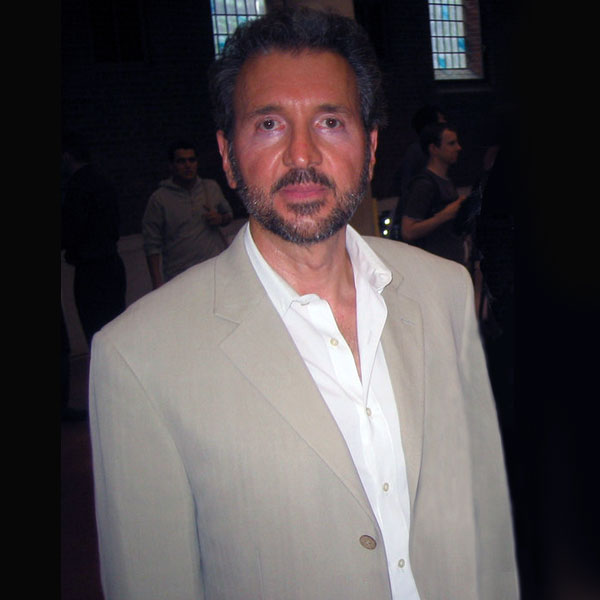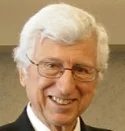Watch Now!
Offering Psychological Insight to Men with Same-Sex Attraction
Join Our E-mail List for News Updates




DR. NICOLOSI’S BELIEFS
For many years, Dr. Joseph Nicolosi, Sr. assisted hundreds of clients with their goal to reduce their same-sex attractions and explore their heterosexual potential.
A licensed clinical psychologist, he believed that our bodies tell us who we are, and that our bodies have made us for heterosexuality.
Homosexuality, he believed, is an adaptation to trauma; it is rooted in a same-sex attachment problem that leaves the boy alienated from his masculine nature.
Dr. Nicolosi did not label this condition a "psychological disorder." However, in his view, homosexual development not only works against our biological design, but it leaves repercussions throughout the personality. In his work with hundreds of men over the years, he saw how homosexual development distorted his clients' understanding of gender. It also interfered with their ability to develop non-erotic relationships with men.
Most of his therapeutic work with clients had very little to do with sex; it centered, in fact, on helping his clients develop comfortable, non-erotic male friendships characterized by mutuality and equality.
Dr. Nicolosi began this work in 1981 as the originator of reparative therapy®. Reparative therapy is not the same as “conversion therapy.” It has nothing to do with shaming the client, forcing any kind of change, alienating families, or giving clients “shock treatments and nausea-inducing drugs,” as activists claim. Also, reparative therapy was never intended for people who identify as gay and are content with their gay-self-identification. It was aimed at people who do not identify with their same-sex attractions.
Dr. Nicolosi's clients would tell him the following: “I know, on some deep level, that I'm a heterosexual man. But I'm troubled by homosexual attractions that prevent me from being who I really am." They see brotherly, non-sexualized masculine relationships as their birthright. They long to develop the masculine energy within themselves which they have been sexualizing and romanticizing in other men.
Many men were victims of homosexual sexual abuse. They didn't believe that "gay" could ever describe them. But that childhood experience left them with attractions that they found compelling, although ultimately not satisfying. These feelings interfered with their values, their marriages, and deeply held beliefs.
There are many other factors of childhood that can lead a man down a homosexual path. Some men had a negative experience with women, such as a smothering or disempowering mother, that blocked them from feeling safe in a sexual relationship with females.
Others—particularly boys with a sensitive, emotional temperament— failed to make a strong connection with their fathers. While their fathers may have loved them in their own way, such boys craved an emotional closeness that these fathers could not provide. As these boys grew toward adulthood, other males began to seem mysterious, exciting and unknowable, and so they came to romanticize the maleness that they craved to know. (As the late psychologist Dr. A. Dean Byrd warned, “Fathers, hug your sons—or someday, another man will.”)
The legitimate therapist will not simply accept at face value, the client’s gay feelings. He must always ask “why,” rather than locking the client into an unwanted gay self-identification.
Dr. Nicolosi Sr.’s work ended when he passed away suddenly in March of 2017. But his books are still available, and therapists remain who are continuing some aspects of his original pioneering work.
The Science Behind DR. NICOLOSI’S Work
In 1992, Dr. Nicolosi and two psychiatrists organized a professional association called the National Association for Research and Therapy of Homosexuality (NARTH). Today, NARTH has over 1000 members around the world.
In “What Research Shows: NARTH's Response to the American Psychological Association’s Claims on Homosexuality.” This paper examines over 100 years of scientific literature on the subject of overcoming unwanted sexual attractions; it offers substantial evidence that for at least some people, these attractions can be modified. Gay activists, who almost uniformly oppose this work, still admit that for some people, “sexual fluidity” is a reality.
Dr. Nicolosi Sr. was not alone in this belief.
Former American Psychological Association President Nicholas Cummings, Ph.D., during his years as Chief Psychologist at Kaiser Permanente in San Francisco, said, “Of the patients I oversaw who sought to change their orientation, hundreds were successful.” [USA Today]
Another Past President of the American Psychological Association, Robert Perloff, Ph.D., endorsed one of Dr. Nicolosi's books with these words:
“The author has contributed enormously to the sexual literature...his challenging and forceful commentary is must-reading from top to bottom, from stem to stern...The policies and resolutions of organizations such as the American Psychological Association... would be better framed and more truthfully based were these organizations...open to the sentiments promoting reparative therapy®.”
American Psychological Association (APA)
Losing Scientific Credibility, Say APA Insiders
In recent years, the psychological professional has become so ideological that it is no longer open to competing ideas. Few members remain who are still willing to speak up; the career cost is simply too high.
For a perspective on this process, we quote Dr. Nicholas Cummings. He was a mainline psychologist, a political liberal, and a promoter of intellectual diversity. Dr. Cummings served as president of the APA before the Association closed itself off to the diversity of competing worldviews. He also successfully worked with clients with unwanted homosexuality. Lest Dr. Cummings' words--spoken just 12 years ago-- be forgotten, we reprint them here.....Psych Association Loses Credibility, Say Insiders





















